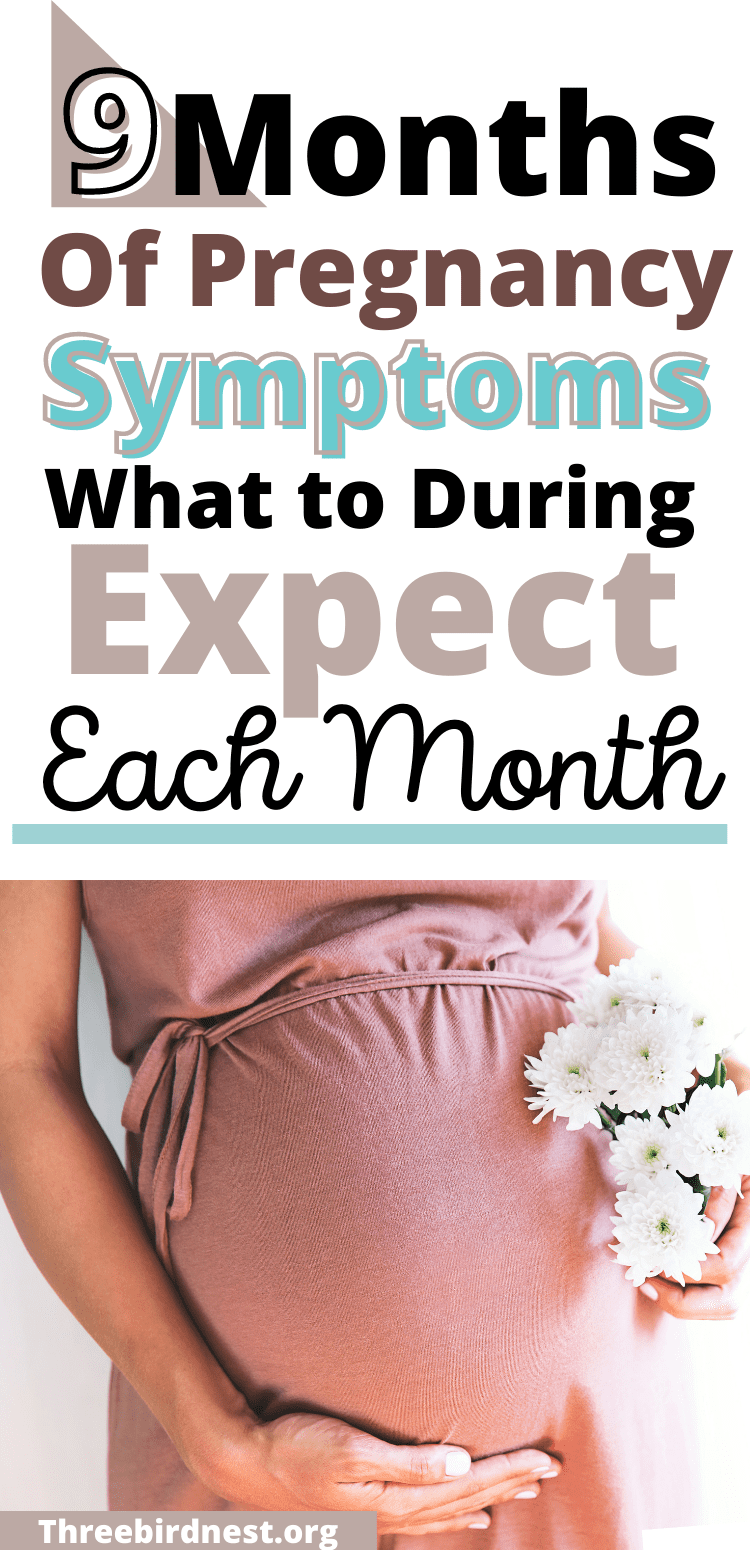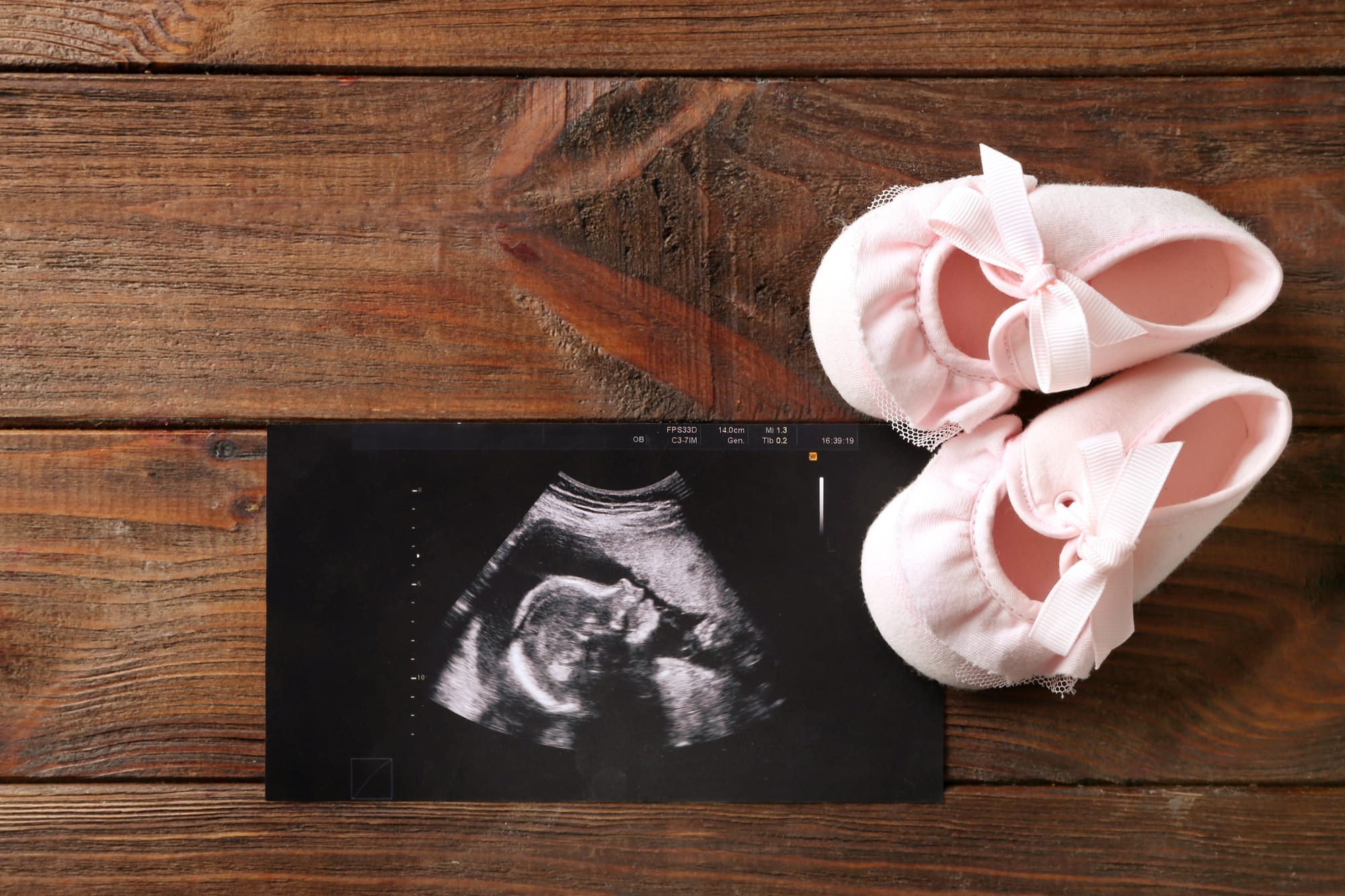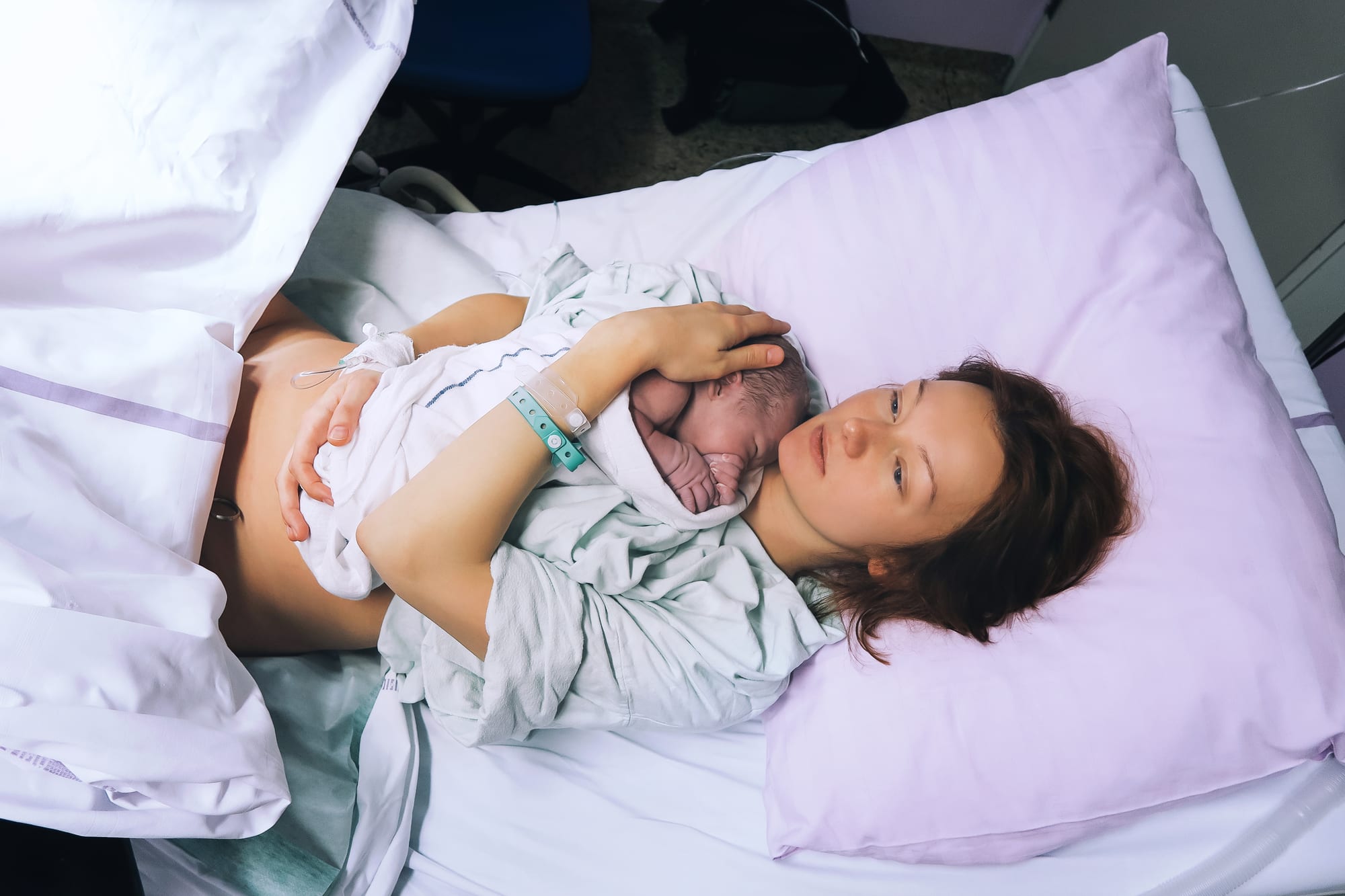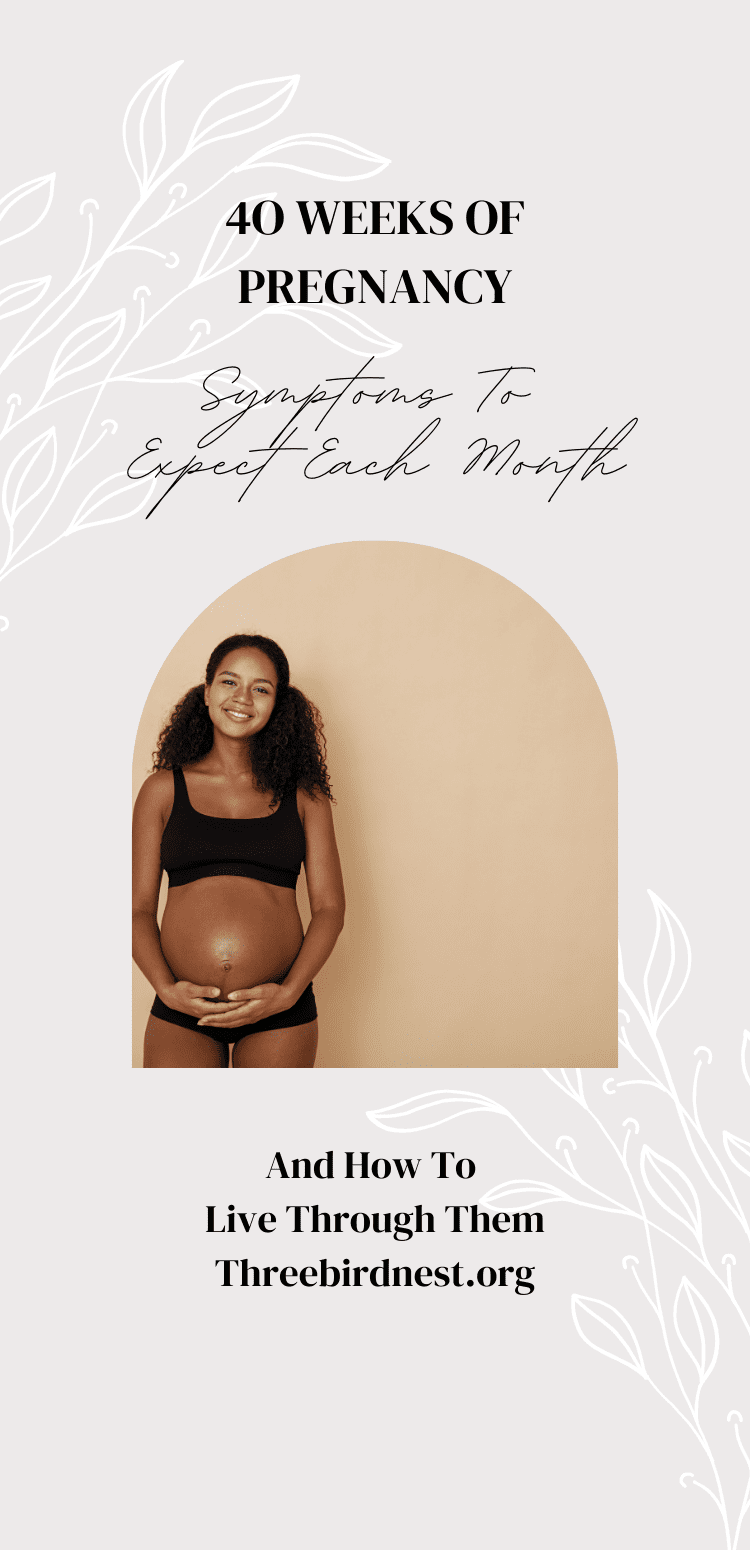Pregnancy is such an exciting time in a woman’s life. But it comes with a cascade of physical changes that can happen overnight.
Your body is thrown into total chaos and it is very overwhelming. It’s good to know exactly what to expect.
A typical full-term pregnancy can range anywhere between 37 to 42 weeks, and this is divided into three trimesters.
Each trimester will last approximately 12 to 14 weeks, which is roughly 3 months. During this time, you will experience physiological and hormonal changes that a very intense. After all, growing a human inside you takes a lot of work so be prepared for one crazy ride!
Here we will guide you through your pregnancy symptoms month to month so that you can be prepared to cope with these changes as they happen.
****Want Freebies For You And Your Baby? Get $330 Worth Of Gear! I have partnered with many companies to give you the best baby freebies online including Nursing Pillow, Pregnancy Pillows, Nursing Covers, Baby Leggings, Baby Clothes and so much more. You can find out how to get your freebies in this post right here.
This post may contain affiliate links.
Pregnancy Symptoms You Need To Know From Month One Till Birth

0 to 3 Month Pregnancy Symptoms
The initial three months of your pregnancy are known as the “first trimester.” The official start of your pregnancy should be from the first day of your last period.
You won’t look pregnant at all on the outside during the first trimester, but your body will go through many changes to accommodate a growing fetus.
The hormonal and physiological changes are not the same for everyone.
Some experience symptoms more harshly than others. You may feel a rapid increase in estrogen and progesterone, which will create a pregnancy “glow” that everyone compliments.
Must Read:
- Things to do right before you go to the hospital.
- Your pregnancy list from start to finish- Everything you’ll need during every stage.
- Your pregnancy to-do list from beginning to end
Or alternatively, you may be very sick from it all. It’s a very individual experience.
The estrogen increase will improve the formation of blood vessels, advance the transfer of nutrients, and support the development of your baby.
Progesterone levels will also be high during this time, and you may feel your ligaments and joints loosening throughout your body. Your ureters that connect your kidneys with the bladder will increase in size, and the uterus will get much larger.
Your posture may also change as your breasts grow bigger month to month and the equilibrium in your body changes due to your uterus growing in size.
Changes in weight will contribute to this as well.
Your tummy will transform from a flat and concave to a convex shape, which will curve your back to shift the effects of gravity forward, thus changing your balance.
Your body will feel like it’s getting a good workout even from the smallest movements, which is why you will start feeling tired more often. It can feel a bit like you’re always climbing an upward hill or even a mountain.
This additional weight and the shift in gravity can slow the circulation of your blood and other fluids in the limbs, which is why you retain more water that will gradually leave you feeling bloated. This is one of the more annoying symptoms and it will continue throughout your pregnancy.
In these initial weeks after conception, your hormone levels change a fair bit to support the growing fetus and placenta, and this will increase your heart rate. Other early symptoms of pregnancy are morning sickness, constipation, and headaches. So sometimes the whole thing can be pretty difficult. But it does get better!
Your first trimester is the most critical period when your baby develops its organs, finishing around the third month.
Therefore, you should always maintain a balanced and healthy diet with extra folic acid to prevent neural tube defects.
It is also wise to stop smoking, drinking alcohol, and taking prescription medications unless your doctor says otherwise if you have those things going on.
A home test can reveal your pregnancy during this time, then you will need to go to your first doctor’s appointment around 6-8 weeks after your last menstrual cycle. The doctor will then confirm that you are pregnant by taking a blood or urine test.
They may use a Doppler machine to conduct a vaginal ultrasound.

This is an exciting experience because you will hear your baby’s heartbeat for the first time. It’s quite magical if I do say so myself.
During this first appointment, they will do lots of tests, things like blood tests to examine your nutritional levels, immunity, and any other indicators regarding your baby’s health.
It’s very important you start getting your prenatal care early on so that you can have as healthy a pregnancy as possible. So get a doc asap and get everything set up. Don’t wait.
A few more things to consider are cutting down on shellfish, deli meat, and coffee. These things can pose a risk to your pregnancy and your growing babe.
Only take prenatal vitamins after getting the green signal from your healthcare provider. Honestly, there are some really crappy vitamins that are not all that good for you.
Here at This Little Nest, we recommend Ritual Prenatal. It’s an extremely healthy and clean prenatal with all the right stuff. You can check out Ritual Prenatal Vitamins Here.
3-6 Month Pregnancy Symptoms
This is when your second trimester kicks in at weeks 13 to 27.
Unlike the first trimester, you will feel more relaxed knowing that you have safely and successfully made it this far. You will also finally start looking pregnant.
Many early pregnancy symptoms will start to disappear by the second trimester and your body will no longer be in shock from the sudden hormonal changes.
Some women even feel pretty normal, like they’re not pregnant anymore. It’s only obvious because their body is continuing to change.
Since your body has begun to adapt to the new feeling of being pregnant, you may experience a surge of energy levels during the day and sleep more soundly at night. I actually had tons of energy during the second trimester with all three of mine and it certainly was a welcome change considering I was DEAD TIRED during my first trimester every time.
In terms of appearance, this is where your lower body will look pregnant in an obvious way as the uterus grows bigger. This is the perfect opportunity to go shopping for some gorgeous maternity dresses so you can avoid wearing clothes that feel too tight. Here are some great options that we recommend.
Since you have gotten over the scary first trimester, now is a great time to tell all your family and friends about your wonderful news if you have not done so already. You can create neat and creative baby announcements and surprise everyone in a fun way.
Although the initial pregnancy symptoms will wear off at this stage, there are some new ones that you need to monitor consistently.
For instance, many women complain about heartburn, backaches, nasal congestion, and leg cramps. You will also gain weight much faster with intense
cravings that increase your appetite since you are now eating for two.
This is the exciting time when you should feel the baby move for the first time, at around 20 weeks. If it’s not your first pregnancy you may feel your babe wiggling around as early as 16 weeks! Many women do.
Your baby can also recognize and hear your voice, so you can enjoy singing or talking to them as a bonding experience.
Your medical visits during the third to sixth month will involve screening tests to unearth any genetic issues that may put you and your baby at risk.
At weeks 18 and 22, you will also need to undergo an anatomy ultrasound that will scan and measure your baby’s lungs, brain, heart, and kidneys. During these scans, your doctor can find out the sex of the baby if you want to know.
At weeks 26 and 28, you will also be checked for gestational diabetes, especially if you have a family history of developing diabetes. The doctor will make you ingest a drink packed with glucose before drawing blood to see how you react to sugar during this stage of pregnancy.
6-9 Month Pregnancy Symptoms
If you have made it to week 28, congratulations! That’s absolutely wonderful.
This is where you will start having more medical checkups because your baby will be due soon. Your doctor will frequently call you in to test your urine for protein, check your blood pressure, and monitor fetal heart rate. Your fundal height will also be measured, which is the length of your uterus.
If you experience a lot of swelling in your hands and legs, this is where your doctor will address the issue in more detail.
Other tests include determining your baby’s position and cervix checks to ensure that your body is fully preparing for childbirth at a steady pace.

Around weeks 36 and 37, your gynecologist should be screening you for Group B Streptococcus (GBS) by taking a quick swab from the vaginal area. This is essential because the bacteria can be harmful to newborns during delivery.
If your GBS test is positive, you will need to get antibiotics during your pregnancy to avoid passing it on to your child.
Your doc will also likely restrict your travel during this trimester because your body is in the most delicate state.
Most cruise ships and airlines will refuse to take passengers that are over 28 weeks pregnant, so avoid booking any holidays. If you need to go anywhere for an emergency, you will need permission from your doctor.
Women have had trouble with flying so it’s important that you listen to your doctor. The pressure and changes associated with flying have sent some women into preterm labor. This is why you may be refused.
If you haven’t taken a pregnancy and labor course at this point this is the time to get it done. You can do it online in just a few hours. Here’s a course created by a labor and delivery nurse and educator that we like to recommend. It’s quick and simple and it will teach you everything you need to know.
The Due Date
When you are at weeks 37-42, you should physically and emotionally prepare to welcome a new family member into the world.
The count down till your due date is a fun and exciting time!
Typically, the due date is an estimated date of delivery that is counted from the first day the last time you had your period, even though conception only takes place about two weeks after this date.
However, note that the due date is most effective for those who have regular periods. If you have had a history of irregular menstruation cycles
throughout your life, your delivery date will not be the most accurate prediction.
You’ll likely get a surge of energy right before your baby comes and go into nesting mode. This is a good time to fully prepare, make sure you have everything you need ( check this post ) and pack your hospital bag if you haven’t already.
It’s also a good idea to prepare and freeze some meals ahead of time and clean up your house as much as possible.

Your body will feel pretty uncomfortable at this point and it may be REALLY hard to sleep but you’re almost there so hang in there!
If you don’t go into labor on or near your due date your doc may want to induce you to get things going, especially if your baby is getting really big.
In The End…..
Pregnancy is a daunting experience, no matter how prepared you are. It is always best to monitor your pregnancy symptoms month to month and never miss a doctor’s appointment so that you and your babe get the best care possible.
Prenatal care is critical before the big day, so you should get all the proper tests on time and keep your doctor’s number on speed dial to give your baby the best first birthday.
We wish you all the luck in the world and congrats on your pregnancy!!
Pin It On Pinterest For Later!



